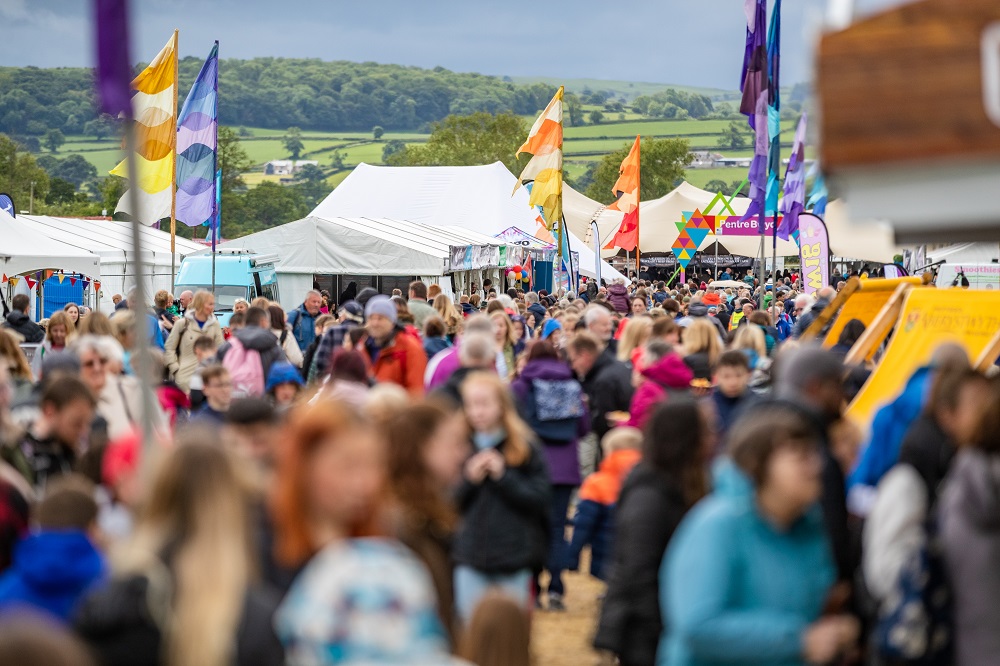The Eisteddfod is an oasis of brutal competition in Wales’ socialist nation – and it’s great

Ifan Morgan Jones
A Welsh language festival for children is probably the last place you’d expect to find the free-market liberal ethos run rampant, but then you may not have visited the Urdd Eisteddfod.
Here, over half term at the end of May and the beginning of June, 15,000 children and young people compete in a dog eat dog world of singing, composing, poetry and musical instruments over three different pavilions: green for group competitions, white for musical instruments and red for armed combat (only kidding – solo competitions).
The super-competitive nature of the event is no accident. Wales is an avowedly left-wing country and most of its national institutions have been set up in the last 100 years under the complete political sway of the socialist Labour party. But the modern Eisteddfod was born from the liberal laissez-faire ideology that dominated Wales in the 19th century.
This philosophy was central to the organization; the all-out war between the poets, the choirs, and the other contestants was thought to be an expression of the value of competing. As R. Tudur Jones says of the institution in his book Hanes Annibynwyr Cymru, “here even language and culture competed like products at a fair”.

It’s fair to say that the Eisteddfod has never forgotten its roots and this year’s Urdd festival has included a few additional innovations to raise the stakes. Rather than the winners being announced from the stage and then the contestants being allowed a few minutes to compose themselves before going out to claim their prizes, a ‘Cornel Canlyniadau’ (Results Corner) has been included on the main field.
It’s less of a corner and more of a podium in the very centre of the Eisteddfod. The contestants are invited up and the winners announced in front of not just S4C’s live TV cameras but also the crowd on the field itself. Around 6pm yesterday evening there were thousands there, clapping, shrieking with excitement and in one case (quickly told off) a solitary boo.
There is even an X-factor style pause before the result is announced, with the losers’ disappointment and the winners’ jubilation captured in close up on the big screen for all to see. It’s practically the Hunger Games, but with harps instead of crossbows.
Blast
This is the opposite of today’s ‘all must have prizes’ ethos. Thousands of children and young adults compete but very few come away with a win. Twice yesterday I watched one of my own daughters board the emotional roller coaster of excitement, hope, disappointment and then resignation. It’s the same roller coaster I boarded in my youth, and still occasionally do at the adult National Eisteddfod in August.
But it didn’t do my daughter any harm – by the time she was back in the car she was speaking excitedly of all the competitions she wanted to take part in next year. It teaches them that success comes with not just hard work but also, when it comes to the arbitrary decisions of the panel of judges, more than a bit of luck too.
But most of all, it teaches them the perhaps rather cliched but valuable lesson that they can take pride in not being the best of all, but in their own efforts and being the very best they themselves can be.
And then there are the winners. Especially when they don’t expect to win, are from non-Welsh speaking, or disadvantaged backgrounds, their faces lighting up is a joy to see.
Failing that, there’s always the funfair, the experiments at the Gwyddonle, or the Tango Blast stall to take the edge off a stinging defeat.
Support our Nation today
For the price of a cup of coffee a month you can help us create an independent, not-for-profit, national news service for the people of Wales, by the people of Wales.






Cytuno’n llwyr, erthygl wych eto Ifan!
Very nicely-described account of the Urdd as it is today. Diolch.
Trying to compare competition and unregulated markets is dumbest idea I’ve seen in ages! Competitions have rules.
Chwaraeon?
Where did you get the idea that Wales is a socialist country.It is rather the epitome of small c conservatism as shown by the song ‘Yma o Hyd’.
Ha ha! Nice try.
Possibly (probably?) the most important young people’s event in the whole UK? Even as a very basic Welsh speaker I felt much at home when attending the Urdd Sir Fylnt a few years back,,,Yma o Hyd!
Diolch o galon ir trefnwyr lleol yn
Dinbych a cylch- wythnos o hwyl a sbri ar y maes.
My grandchildren had a great time on the maes and the llwyfan….
It was great to see all sections of this mixed language area supporting Yr Urdd.
Tan y tro nesa